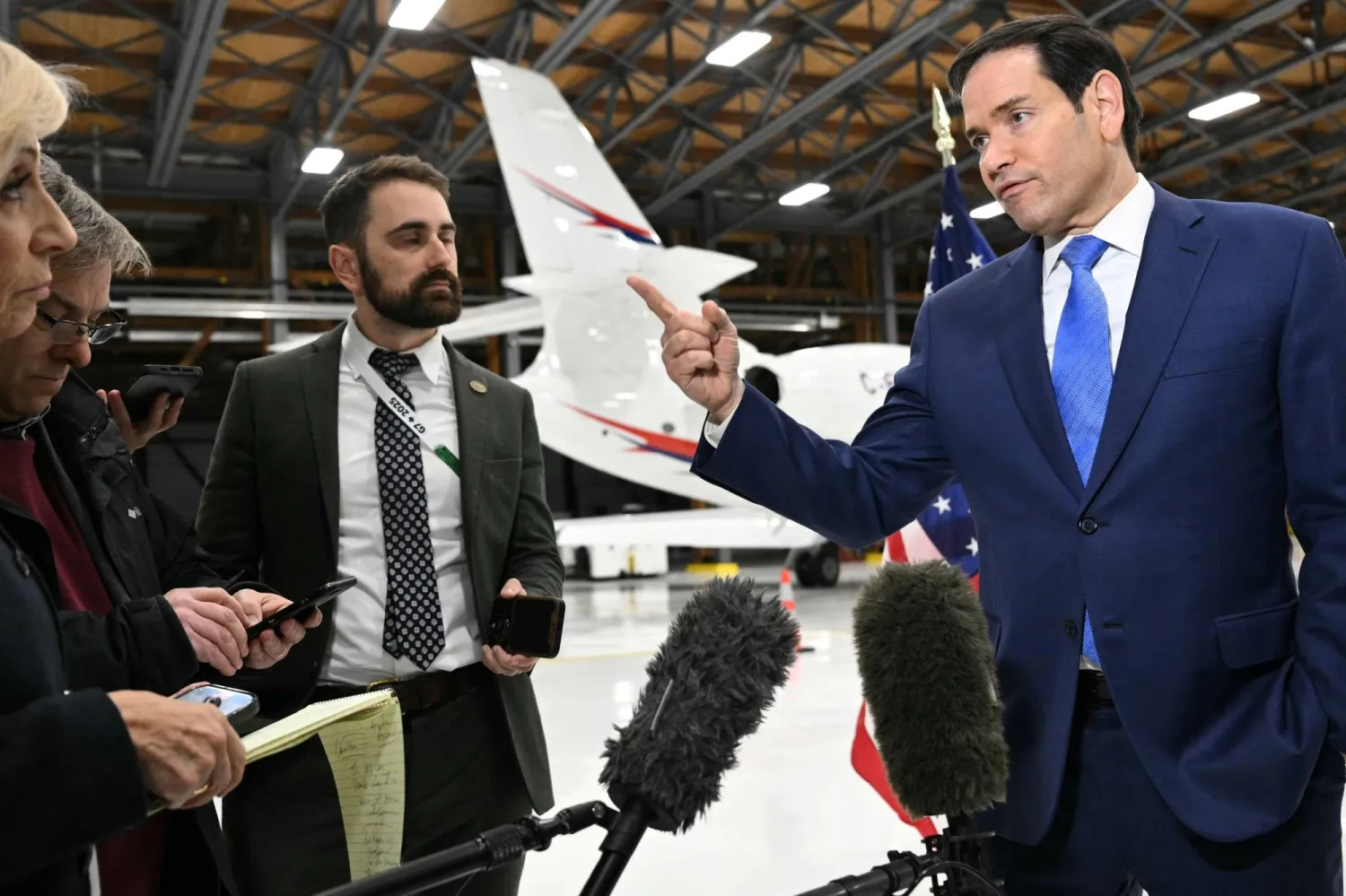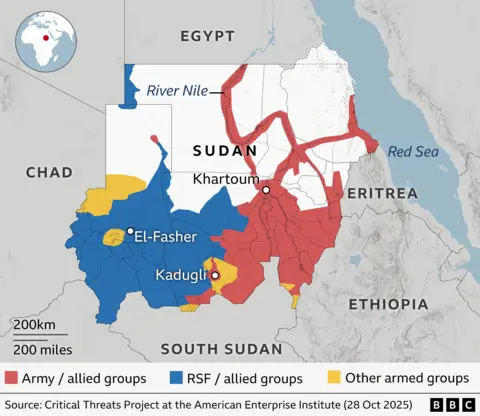The secretary of state rejected the paramilitary group's attempt to blame the killings on rogue elements, saying this was false and the attacks were systematic.
Asked by the BBC about his assessment of the likely scale of atrocities, he said the US feared that thousands of people who had been expected to flee el-Fasher were either dead or too malnourished to move.
He said the RSF, lacking its own arms manufacturing facilities, relied on outside support, and called for countries supplying weapons to stop.
In response the RSF issued a lengthy statement denouncing what it called "all biased statements against them".
The paramilitary group repeated denials that it does not receive support from external parties and said it did not accept attempts to scapegoat it in order to cover up the army's rejection of the truce.
"The party that has rejected all ceasefire initiatives and refused to engage in them is the army affiliated with the terrorist Islamic Movement," it said, "while our forces responded in good faith officially announcing their approval. Yet to this day we have not received any reply from the US side. So, where is the other party and where is its response?"
The joint G7 statement also condemned surging violence in Sudan, saying the conflict between the army and the RSF had triggered "the world's largest humanitarian crisis".
To date, more than 150,000 people have been killed and about 12 million have had no choice but to flee their homes.
The flow of weapons into the country during this two-year-long civil war has been analysed by various experts.
Amnesty International says it has found evidence of weapons manufactured in Serbia, Russia, China, Turkey, Yemen and UAE being used in Sudan.
The smuggling route is often via the UAE, through to Chad, then into Darfur - according to a leaked report by UN experts.
The UAE in particular is accused of providing arms and support to the RSF, who in turn are accused of using the UAE as a marketplace for illicit gold sales.
On Wednesday, Rubio pointedly said assistance to the RSF "isn't just coming from some country that's paying for it - it's also coming from countries that are allowing their territory to be used to ship it and transport it".
He also said he did not want to "diminish" the involvement of other actors in the conflict, saying "that includes potentially the Iranians, at least money and weapons being flown into the other side", meaning to the Sudanese army.
All parties deny these allegations.
A fortnight ago, the UK government came under fire from its own lawmakers following allegations that British-made weapons were ending up in the hands of the RSF, who were using them to commit atrocities.
In response to one MP's demand to "end all arms shipments to the UAE until it is proved that the UAE is not arming the RSF", Foreign Secretary Yvette Cooper said at the time: "The UK has extremely strong controls on arms exports, including to prevent any diversion. We will continue to take that immensely seriously."
There has been a UN arms embargo on the RSF's stronghold of Darfur since 2004, but it has not been extended to the rest of the country despite calls from human rights groups.

